 Thau Yong Music Thau Yong Music
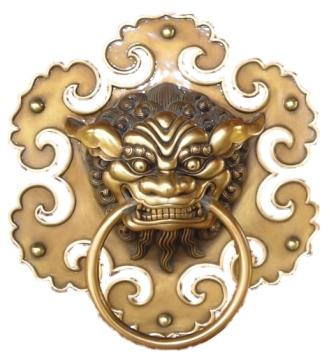 This article explores the co-relation between the Teochews 潮州and Waijiang 外江 music/opera, the difference between Waijiang and the Teochew music/opera people watch today. All these details, together with the political and environmental culture of the Singapore Chinese immigrants bustling in the heart of Chinatown, concocted the rather interesting mission of Thau Yong 陶融儒乐社 in the past 70 odd years. This article explores the co-relation between the Teochews 潮州and Waijiang 外江 music/opera, the difference between Waijiang and the Teochew music/opera people watch today. All these details, together with the political and environmental culture of the Singapore Chinese immigrants bustling in the heart of Chinatown, concocted the rather interesting mission of Thau Yong 陶融儒乐社 in the past 70 odd years.
Although the true origin of Waijiang music and opera has yet to affirmed by any scholastic studies, it is agreed that Waijiang music and opera had spread into the Guangdong province long before the end of the Qing Dynasty, and most importantly, it was the art form known to officials, elites & the educated. By theory of the trickle down effect, Waijiang music/opera finally followed the rich & educated Hakkas & Teochews to South East Asia.
Two of the Chinese characters in Thau Yong’s name, “Ru Yue” (儒乐), literally translates to Scholar’s Music, is the term used interchangeably with Waijiang in Singapore, long back in colonial days. The logic for that name suits all occasions, other than its snobbish background, because firstly, one would need a good education in China history and language, etc to even understand the lyrics & script, purely in Official Language (equivalent to legal jargon in English but now in Mandarin for the Qing Court).
Secondly, this art form is a form of scholastic entertainment only for men, and it should never be used to earn a living. Thirdly, it is to further segregate Wai Jiang opera/music, from other opera forms, e.g. Teochew opera, where young boys and girls perform for the illiterate masses in the streets for money.
After 1949, the establishment of the People’s Republic of China brought about the suppressing of elitist traditional music and the promoting of guoyue (国乐), a lovely modernized form of Chinese traditional music that combines Eastern and Western elements.
At the same time in Chao Shan (潮汕), Teochew Opera’s child slavery system was converted into a professional school system, uncouth and pornographic scripts were discarded, further refining the plebeian entertainment.
Guoyue crept onto the sandy shores of Singapore, spreading its musical charm in particular among the Chinese schools. A 32-year-old Yang Hao Ran purchased most of the instruments and insisting Thau Yong establish Singapore’s first Chinese Orchestra in 1959, despite all vehement opinions on this politically sensitive music genre.
The Chinese Orchestra was a great hit with the secondary school boys, a 40-man orchestra complete with a conductor was born. Thau Yong was invited to perform at many places across the island and was the only Chinese Orchestral music provider for all radio programmes and events on the island.
The diminished supply of Waijiang opera teachers and the release of Teochew Opera movies from the re-vamped Teochew Opera troupes and schools were the key factors to the downfall of Waijiang Opera in Singapore.
From the first movie “Huo Shao Lin Jiang Lou” 《火烧临江楼》in 1958 to “Su Liu Niang” 《苏六娘》in 1960, “Chen San Wu Niang” 《陈三五娘》in 1961 and “Gao Qin Fu” 《告亲夫》in 1962, local Teochews suddenly re-discovered Teochew Opera. Waijiang Opera is hard to understand and extremely difficult to sing along to. Teochew Opera on the other hand, is catchy and most importantly, it entered Singapore via the most popular media channel in town – the movies. Most of the Teochew Waijiang societies raced to include Teochew opera into their society activities. Thau Yong attempted to resist, but the lack of teachers and the dying interest for Waijiang gave Thau Yong no choice but to conform. She presented her first Teochew opera excerpt to the audience on July 19, 1962.
Throughout the 60s, Thau Yong remembered the glory days of Waijiang during the 30s - 50s, and persisted in keeping Waijiang alive. In 1970, Thau Yong decided not to perform any Teochew Opera excerpts during the anniversary performance like the good old days. To their dismay, only a hundred odd tickets were sold unlike the 3000+ per night at National Theatre in the good old days. As the music began to play and the show is about to start, there was a massive black-out at Victoria Theatre. It took one hour to fix the problem and as the lights flooded the theatre once again, the actors only faced an empty auditorium. That black-out marked the last Waijiang opera performance and the desolate death of the Waijiang opera in Singapore.
Thau Yong series of articles contributed by Ms Javier Lee
Related articles:

|

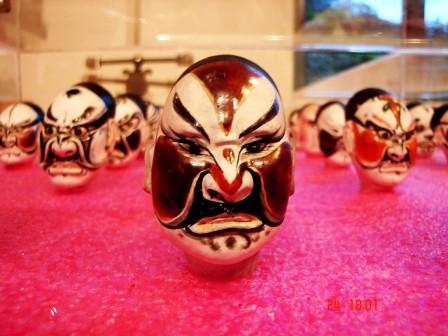
Miniature clay face masks used as a template
for performers to compare when drawing faces
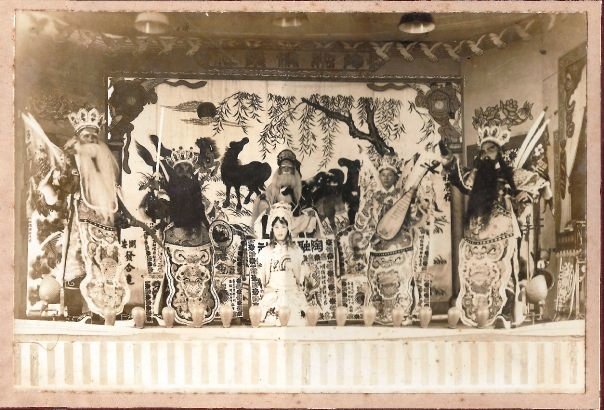
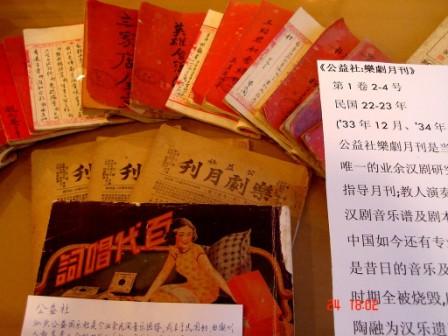
Thau Yong's collection of rare old music scores,
scripts, vinyl discs and magazines
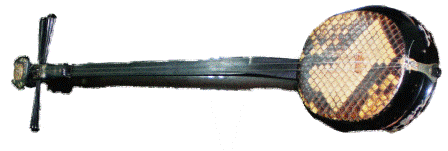
Antique Qin Qin 秦琴 produced in 1881
Collection of Thau Yong
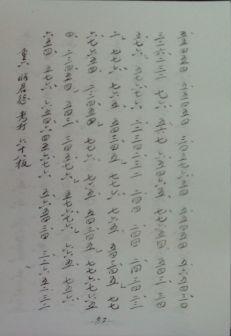
Unpublished pre-war Hand-written
Teochew Music Scores
by pioneering member -
Mr. Yang Hao Ran's father
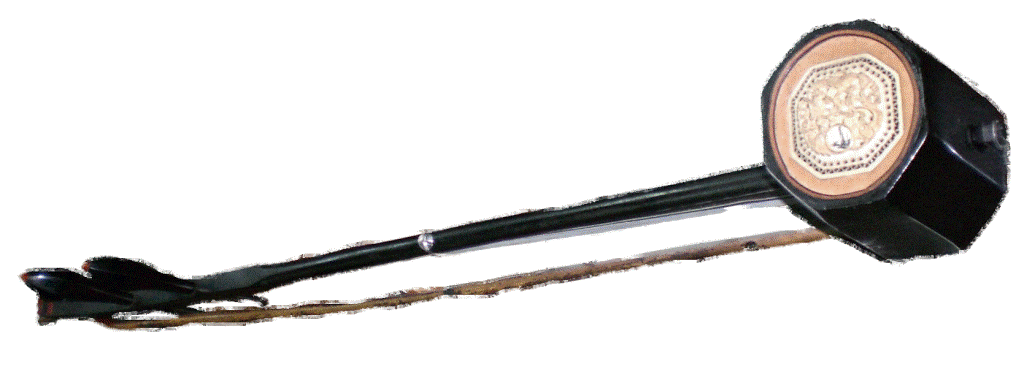
Antique Zhu Xian 竹弦 produced in 1933
Collection of Thau Yong
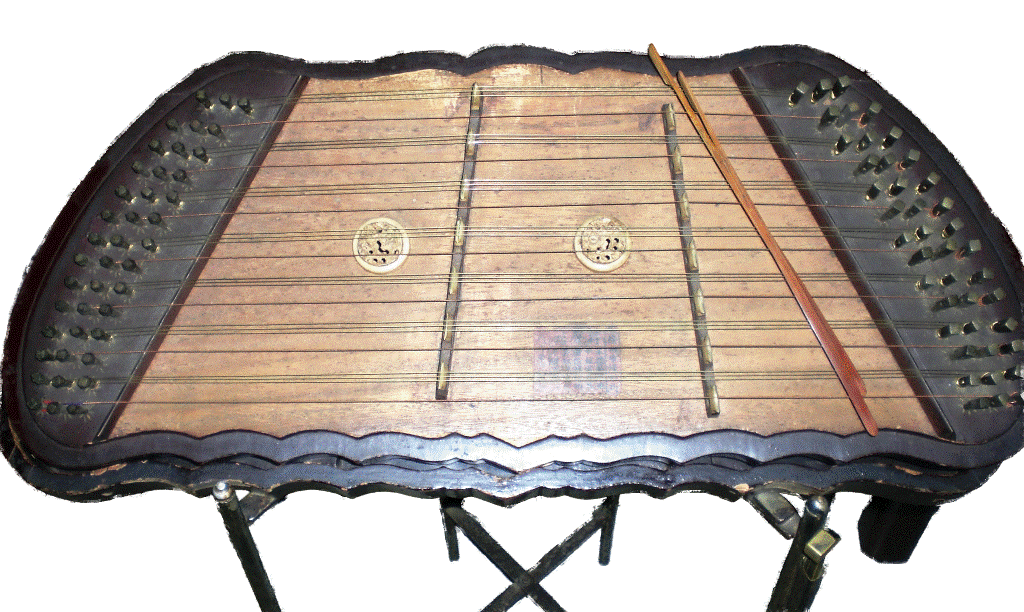
Traditional Han Music's Yang Qin
no longer in production
Collection of Thau Yong
Image source: Archive of Thau Yong Thau Yong Amateur Musical Association. Copyright © Thau Yong Thau Yong Amateur Musical Association
|

 Thau Yong Music
Thau Yong Music








